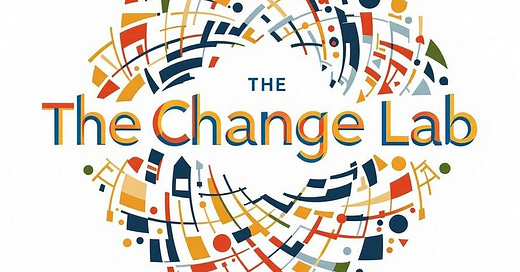The $1,000 Question: What These New Youth Investment Accounts Tell Us About Policy and Possibility
A nonpartisan look at the new federal proposal to seed savings for kids—and why we should all be part of the conversation
Beginning in 2026, every child born in the United States could receive a $1,000 federal investment through a newly proposed savings tool designed to help build long-term economic stability. Officially labeled “MAGA Accounts” in the bill, these youth investment accounts are designed to support education, entrepreneurship, and first-time home purchases.
Let’s set the name aside for a moment. Because what’s happening here—beneath the branding—is worth paying attention to. This is a policy that quietly affirms something many of us already believe: every child deserves a foundation for the future.
What’s Being Proposed?
Under this proposal, families can open accounts for U.S. citizen children under the age of 8. These accounts can receive up to $5,000 per year in after-tax contributions from families, nonprofits, and others. And for kids born between January 1, 2024, and December 31, 2028, the federal government would automatically contribute $1,000—assuming eligibility criteria are met.
But there’s a catch: both parents must provide valid, work-eligible Social Security Numbers to receive the deposit. That means some U.S.-born children—especially those from mixed-status families—may be left out from the start.
Why It Matters
These accounts draw on a larger idea—one that’s been championed across the political spectrum: that early, long-term financial investments can change lives. They echo “baby bonds,” college savings plans, and other wealth-building tools.
But policy isn’t just about what it does. It’s also about who it includes, and who it leaves behind. And that’s the tension: a promising framework that may inadvertently narrow the circle of opportunity.
Still, it’s not an all-or-nothing moment. This is a chance to shape what comes next.
Tools You Can Use to Join the Conversation
Whether you support, oppose, or are just learning about these accounts, you deserve tools to think critically and act meaningfully.
1. Learn Where the Idea Came From
2. Use the 5 Starts App
The 5 Starts App is a free tool to evaluate civic ideas based on five values:
Sustainability, Transparency, Inclusion, Equity, and Long-Term Impact. Use it to reflect solo, with a team, or during a community event. It’s built for dialogue, not debate.
3. Contact Your Representative
Ask them to:
Keep the accounts accessible to all U.S.-born children
Support clear guidelines and public accountability
Find your rep: https://www.house.gov/representatives/find-your-representative
4. Plug Into Civic Conversations
Braver Angels – Brings together conservatives, liberals, and independents for structured conversations and skills training that reduce polarization and build mutual respect.
https://braverangels.orgCitizen University – Offers programs like Civic Saturdays and Civic Collaboratories to help everyday people cultivate civic spirit, agency, and responsibility.
https://citizenuniversity.usThe People’s Supper – Hosts facilitated dinners that bring people across difference together to build trust and deepen understanding.
https://thepeoplessupper.orgNational Conference on Citizenship (NCoC) – Supports local and national efforts to strengthen civic health through research, toolkits, and partnerships.
https://ncoc.orgLiving Room Conversations – Provides free, easy-to-use conversation guides for hosting small-group dialogues on challenging issues like freedom, race, and democracy.
https://www.livingroomconversations.orgCountable / Causes – Makes it easy to understand legislation, take action on issues you care about, and communicate with your representatives.
https://www.causes.comBallotReady – Offers nonpartisan information about every candidate and measure on your ballot, with tools to make and share a voting plan.
https://www.ballotready.orgIssueVoter – Tracks legislation in real time and lets you send feedback to your representatives with a single click.
https://www.issuevoter.orgThe Policy Circle – Engages women in civic leadership by providing tools and frameworks to discuss policy and create community-based impact.
https://www.thepolicycircle.orgUrban Rural Action (UR Action) – Connects rural and urban Americans across divides to collaborate on local solutions through dialogue and action.
https://www.uraction.orgInterfaith America – Mobilizes people of diverse religious and philosophical traditions for civic cooperation, dialogue, and service.
https://www.interfaithamerica.orgLeague of Women Voters – Empowers voters and defends democracy through education, forums, and nonpartisan advocacy; active in many local communities.
https://www.lwv.orgMore in Common – Conducts research and storytelling to understand social fractures and help bridge division with a focus on shared identity and belonging. https://www.moreincommon.com
Aspen Institute – Citizenship & American Identity Program – Explores civic belonging, identity, and the American narrative through convenings and publications.
https://www.aspeninstitute.org/programs/citizenship-and-american-identity-program/Generation Citizen – Equips students with civic knowledge and skills by engaging them in real-world advocacy on local issues.
https://www.generationcitizen.orgCivic Saturdays (via Citizen University) – Civic gatherings that blend reflection, poetry, and community dialogue—part spiritual practice, part civic ritual.
https://citizenuniversity.us/our-work/civic-saturdays
What Should We Call These Accounts?
If “MAGA Account” doesn’t sit right with you, here are some alternatives to consider and share:
Youth Investment Account
NextGen Savings Fund
American Opportunity Account
Foundations Fund
Child Future Fund
Names matter. But what matters more is whether these tools reflect our shared values—and are available to every child who calls this country home.
Final Thought
You don’t have to agree with every part of a proposal to show up and shape the outcome. This isn’t about partisanship. It’s about participation.
Let’s stay curious. Let’s stay connected. And let’s keep asking better questions together—like:
What would it take to make opportunity truly universal?
If you're building, dreaming, or wrestling with this too—I’d love to hear from you. Comment below or reply directly. Let’s talk
.



